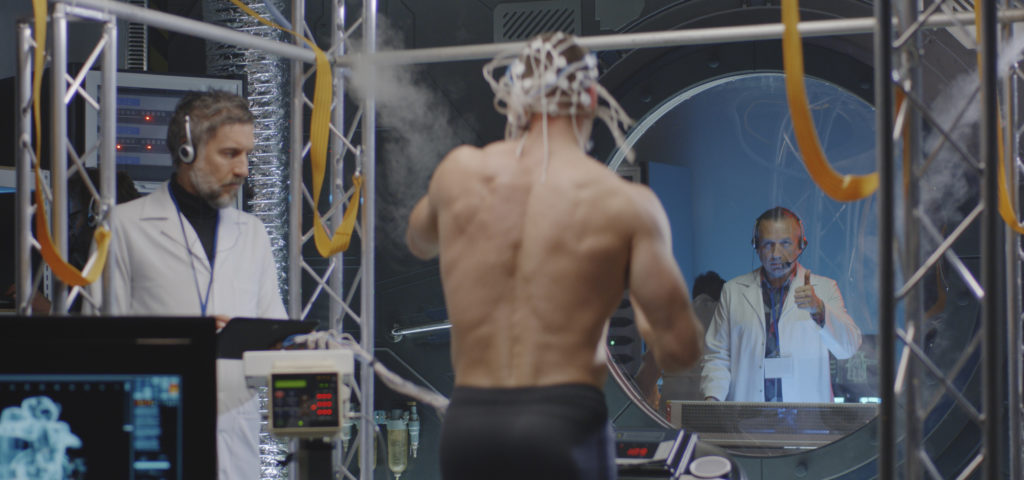Quick Hits
Daily brief research updates from the cognitive sciences

Those of you who have followed my writing will know that I have reported regularly on the amazing benefits of exercise and walking on the brain, body, and cognition.
However, though we know that walking can stimulate various cognitive functions, we also know that doing multiple complex or demanding tasks together reduces performance. So, walking helps stimulate creativity and improves cognitive performance – normally after walking, while walking, performance on cognitive tasks decreases. Which is often why when you really need to think something through you automatically stop or pause.
This is all in line with what we know of cognitive and brain functioning. However, some researchers from the University of Rochester Medical Centre have just published a paper with some surprising results.
What did they find?
26 healthy 18-30-year-olds did a series of tasks. First they did a response task to images of pictures while sitting. This was considered their “baseline” performance level. They then conducted the same task while walking on a treadmill. Almost all previous research showed that performance decreases. This was the case in 12 participants, however, in 14 participants performance increased!
All participants had EEG recordings of their brain activity – and they found that in these 14 prefrontal activity (associated with cognitive performance) in the brain increased during walking tasks leading to higher performance. However, before you get too excited there was no way to predict this from any other data or even observing them.
This suggests that in some people in this study more than 50% of people improve performance on cognitive tasks while walking. Which if we learn to predict this could lead to more effective strategies for cognitive performance for these people.
It could also be that these people also intuitively do tasks that boost their performance. But beware – the research on multitasking is still clear: the more tasks you do concurrently, the lower the performance, the more mistakes you make, and the slower you are. It also compares a highly automated task, walking with a cognitive task, not two cognitive tasks. So, no free card on multi-tasking here.
Single tasking, is still the best advice I can give to boost performance●

Andy Habermacher
Andy is author of leading brains Review, Neuroleadership, and multiple other books. He has been intensively involved in writing and research into neuroleadership and is considered one of Europe’s leading experts. He is also a well-known public speaker speaking on the brain and human behaviour.
Andy is also a masters athlete (middle distance running) and competes regularly at international competitions (and holds a few national records in his age category).
Reference
Eleni Patelaki, John J Foxe, Kevin A Mazurek, Edward G Freedman.
Young adults who improve performance during dual-task walking show more flexible reallocation of cognitive resources: a mobile brain-body imaging (MoBI) study.
Cerebral Cortex, 2022
DOI: 10.1093/cercor/bhac227
More Quick Hits
Breastfeeding Improves Mother’s Cognitive Abilities — Years Later
Quick HitsDaily brief research updates from the cognitive sciences o are you saying that breast feeding is not only good for the infant but also the mother?!Yes, we’ve know for a long, long time that breastfeeding is very good for the infant. Over...
Mothers Can Pass on Stress to Future Generations
Quick HitsDaily brief research updates from the cognitive sciences presume you’re not just talking about stressed mothers stressing out their kids and/or grandchildren?Not precisely. I’m talking about passing on stress activation patterns in DNA...
Learning Before Age Five Can be Seen in the Brain Forty Years Later
Quick HitsDaily brief research updates from the cognitive sciences ducation before age five leaves structural changes to the brain, identifiable forty years later — impressive! This is the beauty of long-term longitudinal studies (the negative side...
Exercise in Childhood Predicts Healthy Brains (into Adulthood)
Quick HitsDaily brief research updates from the cognitive sciences k, we all know by now that exercise is good for you. Many of you may also be more than aware that exercise is a potent stimulator for the brain encouraging brain growth and...
The Surprising Truth of Why Powerful People can be Toxic
Quick HitsDaily brief research updates from the cognitive sciences e’ve all heard the stories of toxic bosses, and powerful people who happily destroy other people’s lives, and show no compassion to those less fortunate than themselves. There is a...
Leadership Behaviours for More Resilient and Effective Teams
Quick HitsDaily brief research updates from the cognitive sciences hat makes for effective and resilient teams is something that interests many leaders and organisations. I have spoken about some of these aspects in other articles, particularly...






